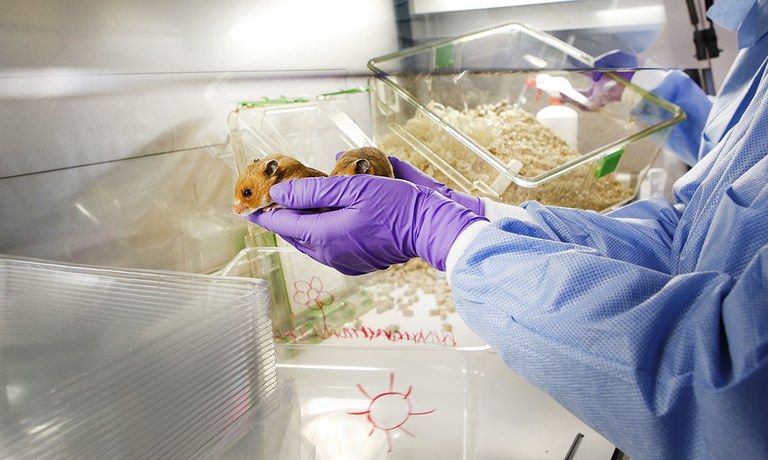High doses of the antiviral medication favipiravir have shown good results in stopping the progress of the Covid-19 infection in hamsters, according to a new paper by researchers from the Rega Institute at the university of Leuven.
Favipiravir is commonly used in Japan to fight the seasonal flu, but is less well-known here. The Rega team – Professor Johan Neyts, research associate Dr. Suzanne Kaptein, assistant professor Leen Delang and researcher Dr. Joana Rocha-Pereira – compared the drug with the much better-known hydroxychloroquine, using hamsters.
The animals were given either hydroxychloroquine or favipiravir, and those who received favipiravir were given various doses. Some hamsters were infected directly via the nose, while others were infected by being placed in a cage with an infected animal.
After four days, the disease progress in each of the animals was measured.
What the team found was that virtually no virus remained in the animals that had received large doses of favipiravir, regardless of the manner of infection. The effect was missing, however, in animals that had received low doses.
“It was the high dose that made the difference,” Prof. Delang said. “That’s important to know, because there are international clinical studies set up to test favipiravir on humans.”
As far as the animals that had received hydroxychloroquine were concerned, on the other hand, no such positive effect was recorded.
“Despite the lack of clear evidence in animal models or clinical studies, many COVID-19 patients have already been treated with hydroxychloroquine,” explained Dr. Rocha-Pereira.
“Based on these results and the results of other teams, we advise against further exploring the use of hydroxychloroquine as a treatment against COVID-19.”
The research by the Rega Institute team is published in the journal PNAS.
Alan Hope
The Brussels Times

